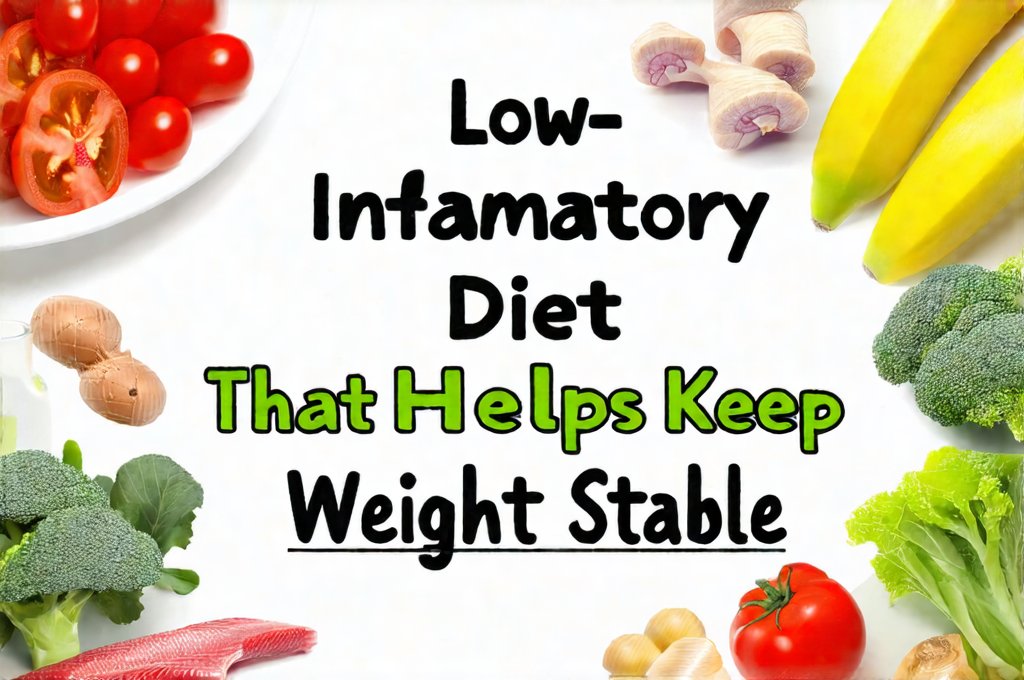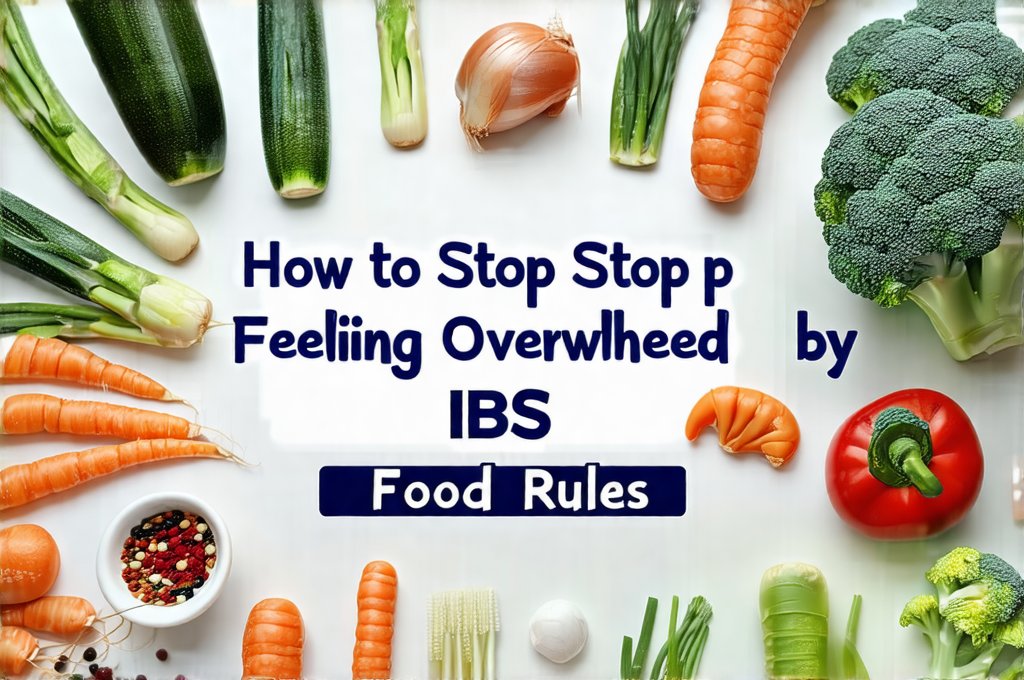Introduction
Maintaining a stable weight isn’t always about restrictive dieting; often, it’s deeply intertwined with managing inflammation within the body. For many, weight fluctuations aren’t merely a result of calorie imbalances but are significantly influenced by chronic low-grade inflammation, which can disrupt metabolic processes and hormone regulation. A diet focused on reducing inflammatory responses isn’t necessarily a ‘weight loss’ diet in the traditional sense, but rather an approach that supports overall health and creates a more favorable internal environment for natural weight equilibrium. It’s about nourishing your body with foods that calm systemic inflammation, making it easier to maintain a healthy weight over the long term without constant struggle.
This isn’t about eliminating entire food groups or adhering to rigid rules. Instead, it’s about consciously shifting towards whole, unprocessed foods known for their anti-inflammatory properties while minimizing those that can trigger inflammatory responses. The goal is sustainable change—a way of eating that’s enjoyable and supports both physical wellbeing and mental health. It acknowledges the complexity of weight management and moves away from quick fixes toward a holistic approach centered around food as medicine, not just fuel. Understanding how different foods impact your body’s inflammatory state can empower you to make informed choices for long-term health and stability.
The Science Behind Inflammation and Weight
Inflammation is a natural part of the immune system’s response to injury or infection. It’s crucial for healing. However, when inflammation becomes chronic—low-grade but persistent—it can contribute to various health problems, including insulin resistance, hormonal imbalances, and metabolic slowdown. These factors directly impact weight management. Insulin resistance, for example, means your body doesn’t respond effectively to insulin, leading to higher blood sugar levels and increased fat storage. Hormonal imbalances, particularly in cortisol (the stress hormone), can also promote abdominal fat accumulation. Chronic inflammation essentially throws a wrench into the gears of your metabolism.
The Western diet—high in processed foods, refined sugars, and unhealthy fats—is often a major driver of chronic inflammation. These foods trigger an immune response, even without an actual threat, leading to ongoing inflammatory processes. Conversely, diets rich in antioxidants and anti-inflammatory compounds found in fruits, vegetables, healthy fats, and lean proteins can help dampen these responses. The gut microbiome also plays a huge role; an unhealthy gut (dysbiosis) can contribute to increased inflammation, while a diverse and thriving gut microbiome supports immune regulation and reduces inflammatory load.
The link between inflammation and weight isn’t just about metabolic effects. Inflammation impacts brain function too, potentially affecting appetite regulation and cravings. It can also lead to fatigue and reduced motivation for physical activity, further hindering weight management efforts. Therefore, addressing inflammation through diet is a multifaceted approach that tackles the underlying factors contributing to weight instability.
Building Blocks of an Anti-Inflammatory Diet
A cornerstone of this dietary approach is prioritizing whole, unprocessed foods. This means focusing on foods in their natural state as much as possible – think fresh produce, lean proteins, and healthy fats. Here’s a breakdown of key food groups:
- Fruits & Vegetables: Aim for a rainbow of colors to maximize antioxidant intake. Berries, leafy greens, broccoli, peppers, and tomatoes are particularly beneficial.
- Healthy Fats: Incorporate sources like avocados, olive oil, nuts, seeds (chia, flax), and fatty fish (salmon, mackerel). Omega-3 fatty acids found in these foods have potent anti-inflammatory effects.
- Lean Proteins: Choose options like poultry, fish, beans, lentils, and tofu. Limit red meat consumption.
- Whole Grains: Opt for quinoa, brown rice, oats, and other whole grains over refined grains (white bread, white rice).
Beyond choosing the right foods, how you prepare them matters. Avoid frying or excessively processed cooking methods. Steaming, baking, grilling, or sautéing with olive oil are preferable choices. Minimizing added sugars and artificial sweeteners is also critical, as these can exacerbate inflammation.
Foods to Minimize or Avoid
Certain foods are known to promote inflammatory responses in the body. While occasional indulgence isn’t harmful, consistently consuming these foods can hinder weight stability and overall health. Key culprits include:
- Sugary Drinks: Sodas, fruit juices (even 100% juice), and sweetened beverages contribute significantly to inflammation and insulin resistance.
- Processed Foods: Packaged snacks, fast food, and processed meats often contain unhealthy fats, added sugars, and artificial ingredients that trigger inflammation.
- Refined Carbohydrates: White bread, pastries, and other refined grain products cause rapid spikes in blood sugar, leading to inflammatory responses.
- Unhealthy Fats: Trans fats (found in some processed foods) and excessive amounts of saturated fats can promote inflammation. Limit fried foods and fatty cuts of meat.
- Artificial Sweeteners: Some studies suggest that artificial sweeteners may disrupt gut health and contribute to inflammation.
It’s important to note that individual sensitivities vary. Some people may be more reactive to certain foods than others. Paying attention to your body’s signals and identifying potential trigger foods is crucial for personalizing your diet.
Practical Steps for Implementation
Transitioning to a low-inflammatory, weight-stable diet doesn’t have to be overwhelming. Here are some practical steps you can take:
- Start Small: Don’t try to overhaul your entire diet overnight. Begin by making one or two small changes each week. For example, swap sugary drinks for water or herbal tea, or replace white bread with whole-grain bread.
- Meal Prep: Planning and preparing meals in advance can help you stay on track and avoid impulsive unhealthy choices. Dedicate a few hours each week to grocery shopping and meal prepping.
- Read Labels Carefully: Pay attention to ingredient lists and nutrition facts panels. Look for hidden sugars, unhealthy fats, and artificial ingredients.
- Hydrate Regularly: Drinking plenty of water helps flush out toxins and supports overall health.
- Focus on Whole Foods: Prioritize whole, unprocessed foods as the foundation of your diet. Build meals around fruits, vegetables, lean proteins, and healthy fats.
- Listen to Your Body: Pay attention to how different foods make you feel. If a particular food consistently causes bloating, discomfort, or fatigue, it may be an inflammatory trigger for you.
Ultimately, the most sustainable dietary approach is one that feels manageable and enjoyable. It’s not about deprivation; it’s about nourishing your body with foods that support its natural healing capabilities and promote long-term wellbeing—and a stable weight as a happy byproduct of health.




